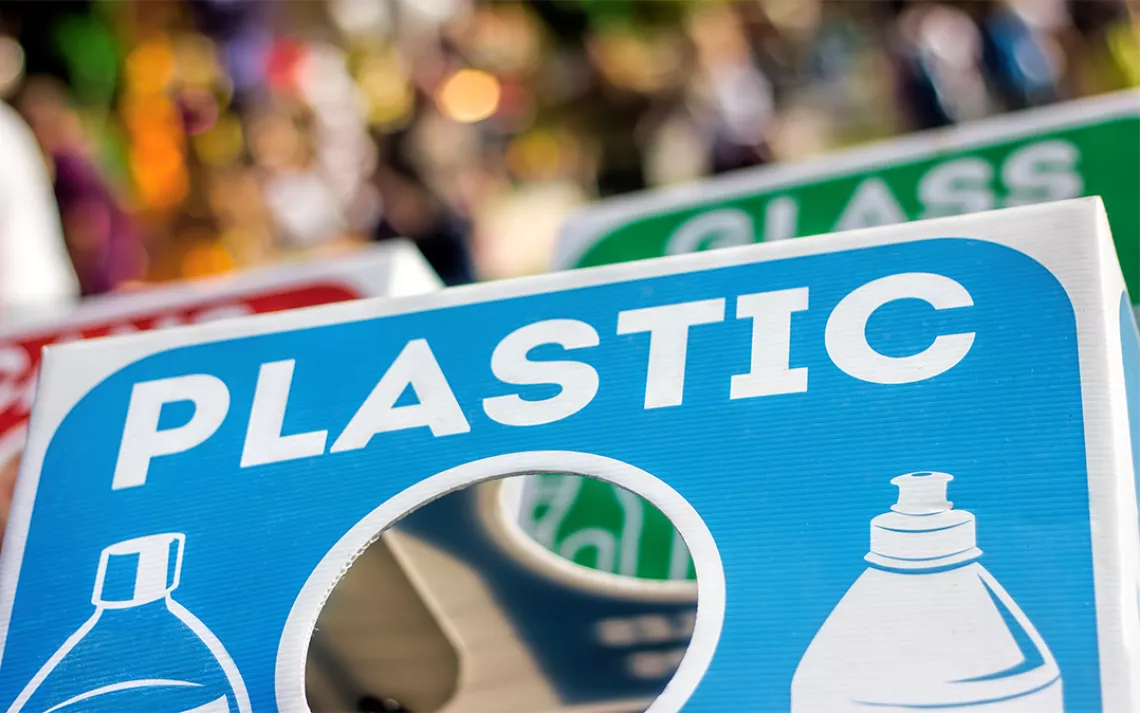Hey Mr. Green! Why Are Some Recyclers No Longer Taking Plastic?
Mr. Green sleuths for the answer

Hey Mr. Green,
The town where I recycle has quit taking glass, some plastics, and all Styrofoam. They say this is because they don't make that much on those recyclables. Why is this going backward?
—Reeves in Kerrville, Texas
The answer, as is often the case, can be found by following the money. Recycling plastic, for example, has taken a hit in the past few years because of lower oil prices. (In California alone, more than 600 recycling centers have closed in the past year.) Cheap oil has compelled plastics manufacturers to use more virgin material made directly from petroleum instead of recycled plastic, so reduced demand caused prices to plunge. For example, the price of #1 plastic used in containers dropped from around $500 a ton to $200 a ton, while the price of glass is extremely unsteady. Even aluminum, the most lucrative material, is off by about $500 a ton.
To further aggravate the price problem, China, a major market for recycled material from the United States, is taking less, both because its economy has slowed down and because it instituted a “Green Fence” policy. The Chinese were getting more contaminated recycled material than they wanted, so they began to strictly enforce higher quality standards. This meant that U.S. recyclers had to invest a lot of money in improved equipment and handling processes, which drove up their expenses.
Some critics say that big national recyclers like Waste Management exaggerate the problem to have an excuse to close less-profitable operations, pointing to a few smaller, local operations that continue to be successful despite the drop in prices. But there is no denying that the price drop has had a huge impact.
Where container deposits are required by law, the payments from state government often have not made up for the loss from falling prices, and raising the payments requires a change in the laws. Only 10 states have deposit laws, which have succeeded in making their recycling rates much higher—in some cases the volume is twice that of other states that lack deposit requirements.
 The Magazine of The Sierra Club
The Magazine of The Sierra Club



